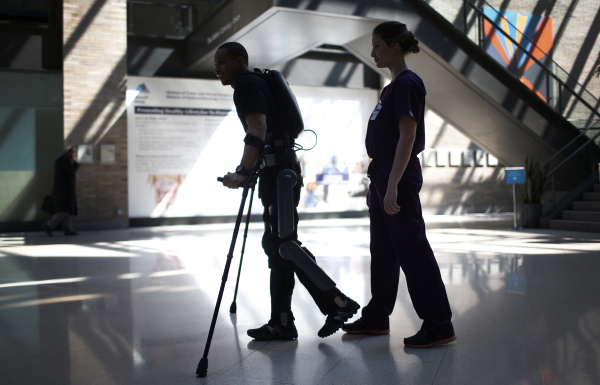
At the Mount Sinai Spinal Injury Cord Program we provide persons with new or longstanding spinal cord injury (SCI) with opportunities to participate in clinical trials of new drugs and interventions that may lessen the impairment, or increase a person’s ability to function independently.
We have participated in the use of biologic therapies for the treatment of SCI, including implanting neutrophils (Proneuron) and stem cells (StemCells) into the spinal cord. Our staff and faculty also conduct research on various aspects of SCI treatments and outcomes, collaborating with prominent researchers in the United States and around the world. A portion of our research is funded by the U.S. Department of Health and Human Services National Institute on Disability, Independent Living, and Rehabilitation Research (NIDILRR); sponsors of other projects include pharmaceutical industry and non-profit organizations.
We have been instrumental in developing and validating an international consensus classification of pain after SCI working with partners from across the globe. This classification has been integrated into the International SCI Pain Data Sets and is the current standard for classifying pain after SCI throughout the world. Pain is a huge problem after SCI with the majority of persons experiencing chronic pain and there are few effective therapies. We are testing novel ways of treating pain after SCI.
We work closely with the National Center for the Medical Consequences of Spinal Cord Injury at the James J. Peters VA Medical Center. Investigators in this center have academic appointments within the Department of Rehabilitation Medicine at the Icahn School of Medicine at Mount Sinai. We have co-located a Cardiovascular/Autonomic Lab and a Robotic Exoskeleton Lab, directed by Ann Spungen, PhD and Tsai Chung-Ying PT, PhD, on the same floor as the inpatient rehabilitation unit.
Collaborators
Mount Sinai Spinal Cord Injury Center works closely with many collaborators who are affiliated with the Mount Sinai Health System and with others who are outside of the health system. Our collaborators include:
- Within the Mount Sinai Health System
- Outside of the Mount Sinai Health System

